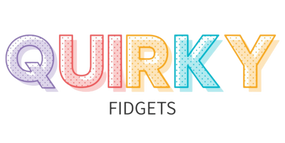In a world filled with distractions and constant stimuli, maintaining focus on tasks can be a real challenge. Whether you're a student trying to study, a professional working on a project, or an individual aiming to enhance their productivity, finding effective methods to concentrate is crucial. Interestingly, one solution gaining significant attention in recent years is the use of fidget tools. Contrary to popular belief, these tools aren't just idle toys; they can actually play a pivotal role in increasing your ability to focus on tasks. In this blog post, we will explore the science behind fidget tools and how they can positively impact your concentration and productivity.
What Are Fidget Tools?
Fidget tools encompass a wide range of items that provide tactile, auditory, or visual stimulation to keep the hands and mind engaged while performing other activities. These tools can vary from simple stress balls and textured objects to intricate gadgets like fidget spinners, cubes, or even pens. Initially, these tools gained popularity as aids for individuals with attention disorders such as ADHD, but their benefits extend far beyond that.
Enhanced Sensory Stimulation
One of the key reasons why fidget tools are effective in improving focus is their ability to provide sensory stimulation. The human brain has an innate need for stimulation to maintain optimal performance, and fidget tools serve as a healthy outlet for this need. By engaging different senses, such as touch, sight, and sound, fidget tools offer the brain just enough stimulation to prevent it from seeking distractions elsewhere. This helps redirect excess energy and allows individuals to concentrate better on the primary task at hand.
Improved Cognitive Function
Studies have shown that engaging in minor physical activities, such as fidgeting or doodling, can actually enhance cognitive function. Fidget tools serve as a means to channel restlessness into purposeful movements, thereby improving cognitive processes like memory, information processing, and problem-solving abilities. The rhythmic and repetitive nature of using fidget tools can activate the brain's reward system, leading to increased levels of focus and motivation.
Stress Reduction
Another significant advantage of fidget tools is their ability to alleviate stress and anxiety, which are notorious for hindering concentration. The act of fidgeting can help release tension, calm the mind, and reduce anxiety levels, leading to a more relaxed and focused state. By keeping the hands busy, fidget tools create a subconscious distraction from external stressors, allowing individuals to immerse themselves more deeply in their tasks.
Increased Mindfulness
Fidget tools also serve as a gateway to mindfulness. While performing mindless repetitive movements, individuals can enter a state of mindfulness and achieve mental clarity. Focusing on the present moment and the sensations experienced while using fidget tools can help individuals tune out distractions and develop a heightened awareness of their surroundings. This practice strengthens the ability to concentrate on tasks and enhances overall cognitive performance.
Incorporating Fidget Tools into Your Routine
If you're interested in harnessing the benefits of fidget tools to improve your focus, here are a few suggestions on how to incorporate them into your daily routine:
-
Experiment and find the right tool: Explore the variety of fidget tools available and identify the ones that work best for you. Everyone has different preferences, so find a tool that suits your sensory needs and provides the right level of stimulation.
-
Integrate fidgeting mindfully: Be conscious of when and how you use fidget tools. Use them purposefully during activities that require focus, such as studying, working on assignments, or brainstorming ideas.
-
Use them sparingly when necessary: While fidget tools can enhance concentration, it's important not to become overly reliant on them. Use them as a supplementary aid when you feel distracted or restless, but aim to gradually reduce dependence over time.
-
Respect your environment: Ensure that the use of fidget tools is appropriate and respectful in shared spaces. Opt for quieter tools or those that do not cause disruption to others around you.
Conclusion
In a society where multitasking and constant stimulation are the norm, cultivating focus and concentration is increasingly challenging. Fidget tools have emerged as a valuable resource in enhancing these essential cognitive skills. By providing sensory stimulation, promoting mindfulness, and reducing stress, these tools offer a unique solution to combat distractions and improve productivity. So, the next time you find yourself struggling to concentrate, consider incorporating a fidget tool into your routine and witness the positive impact it can have on your ability to focus on tasks.








